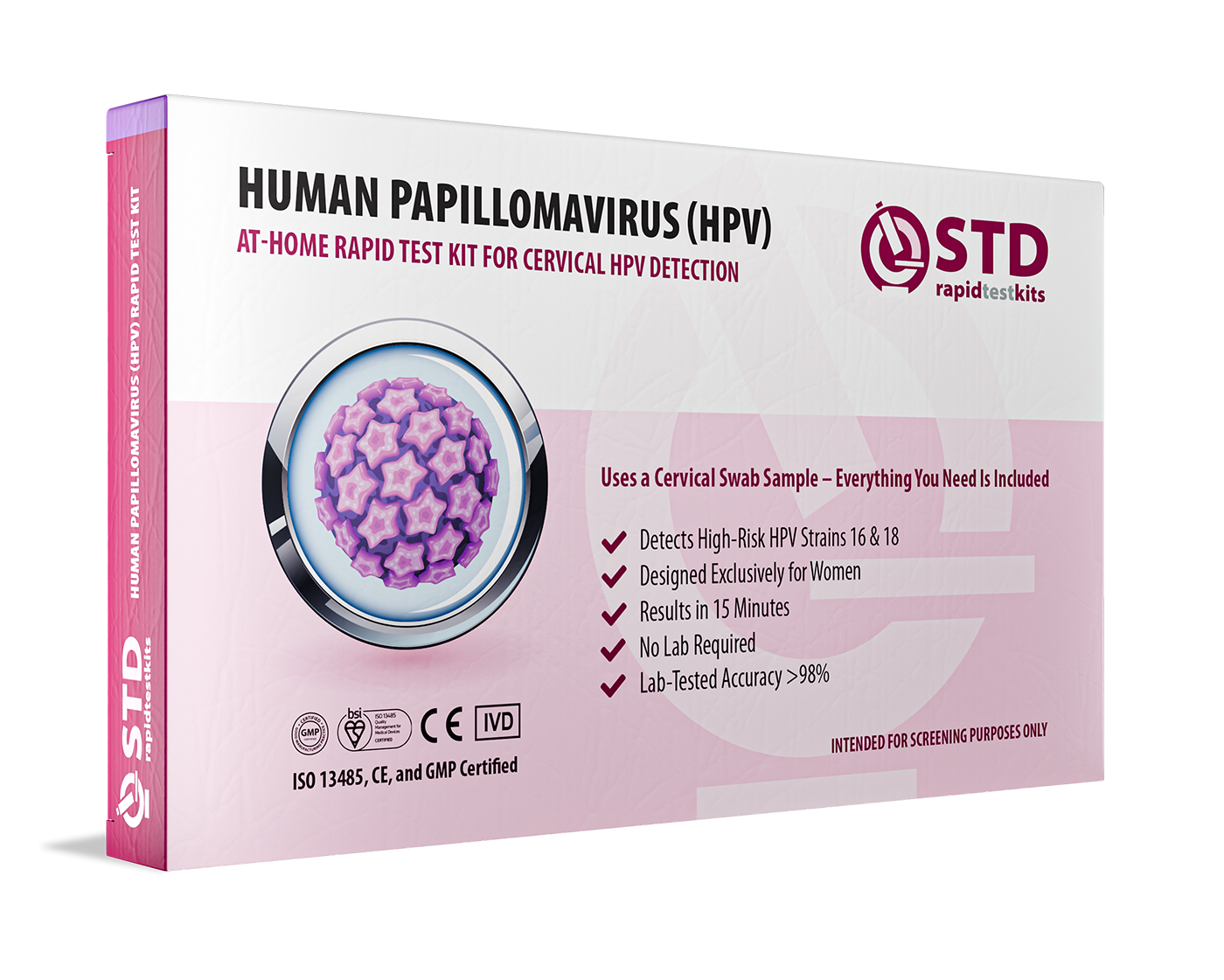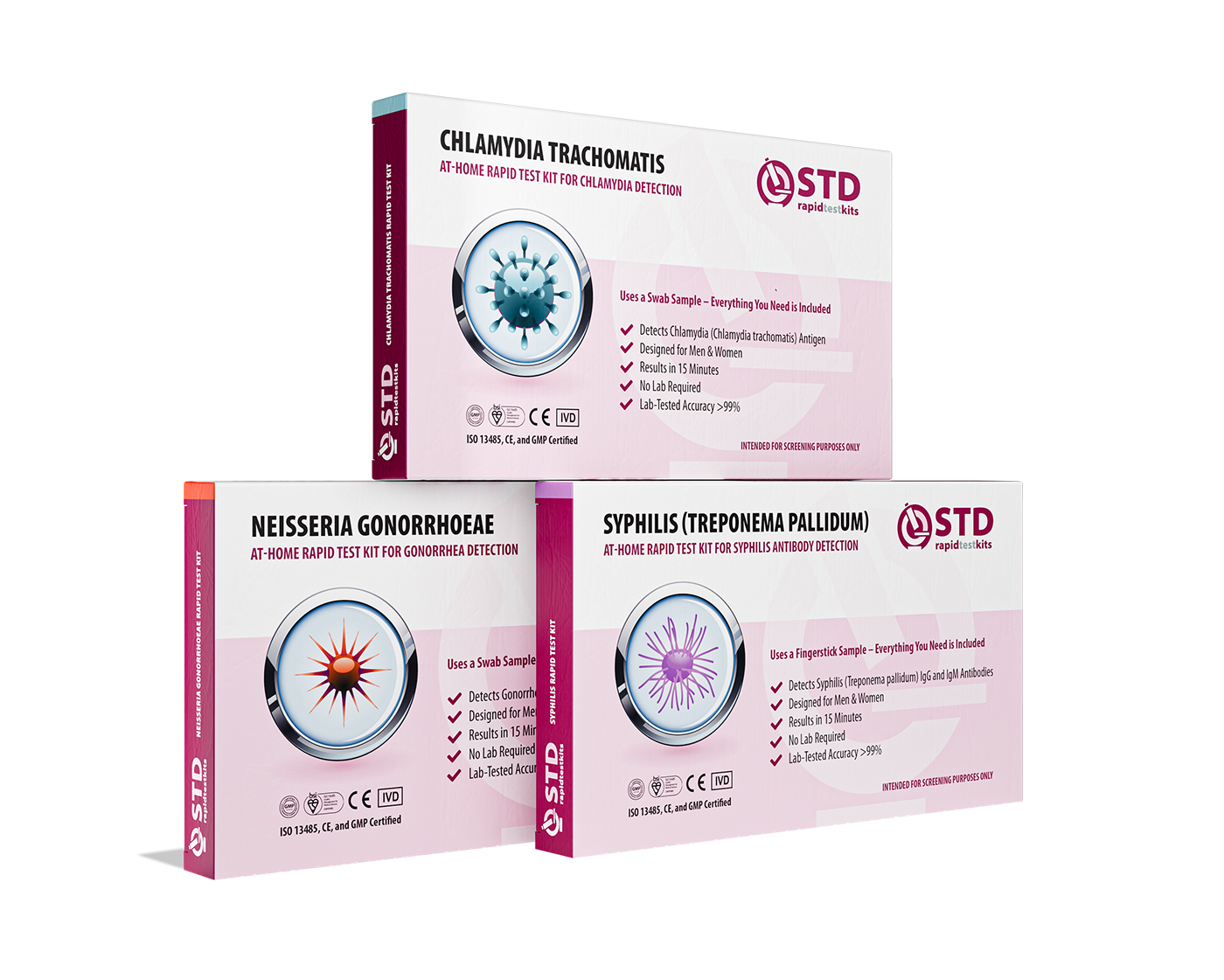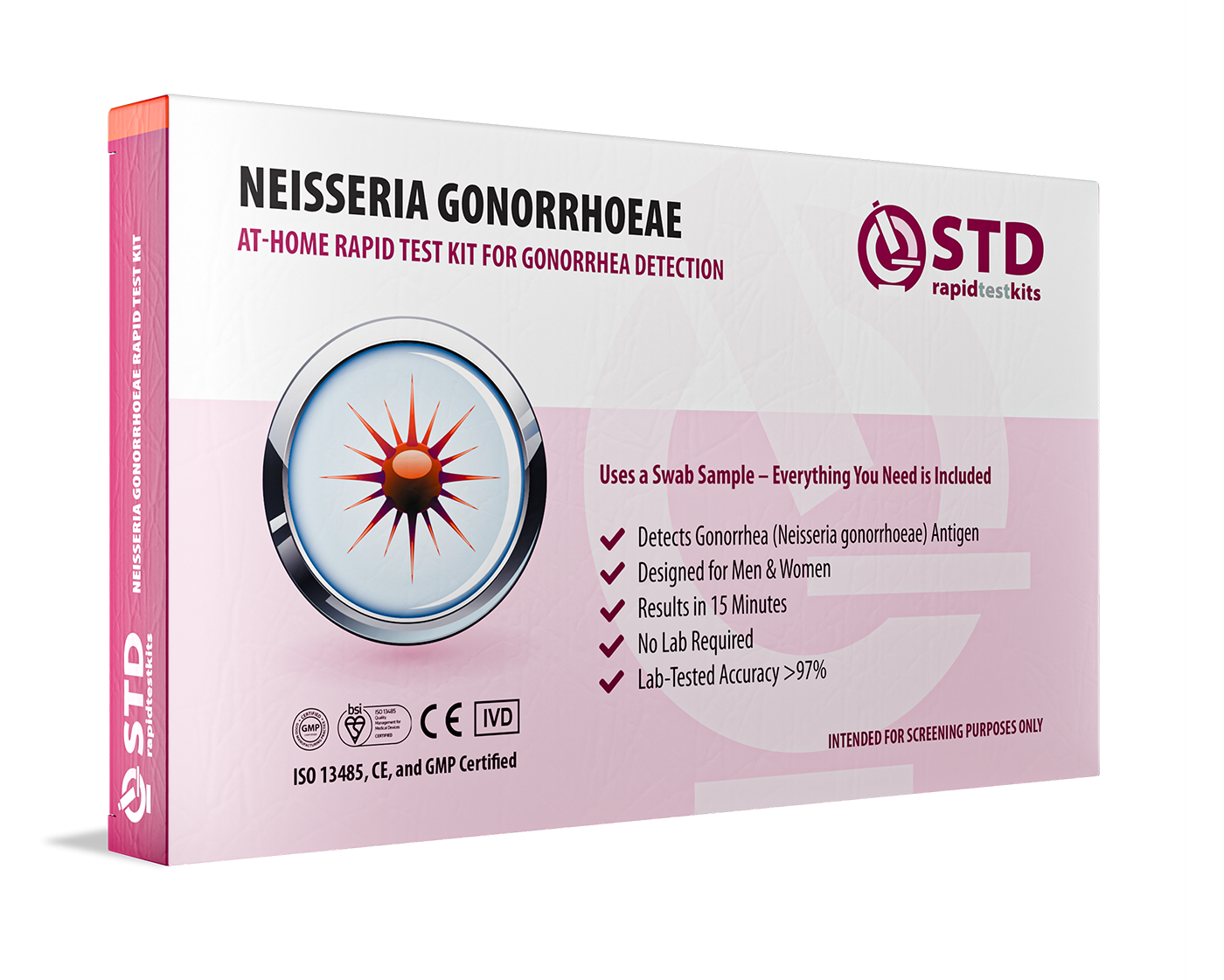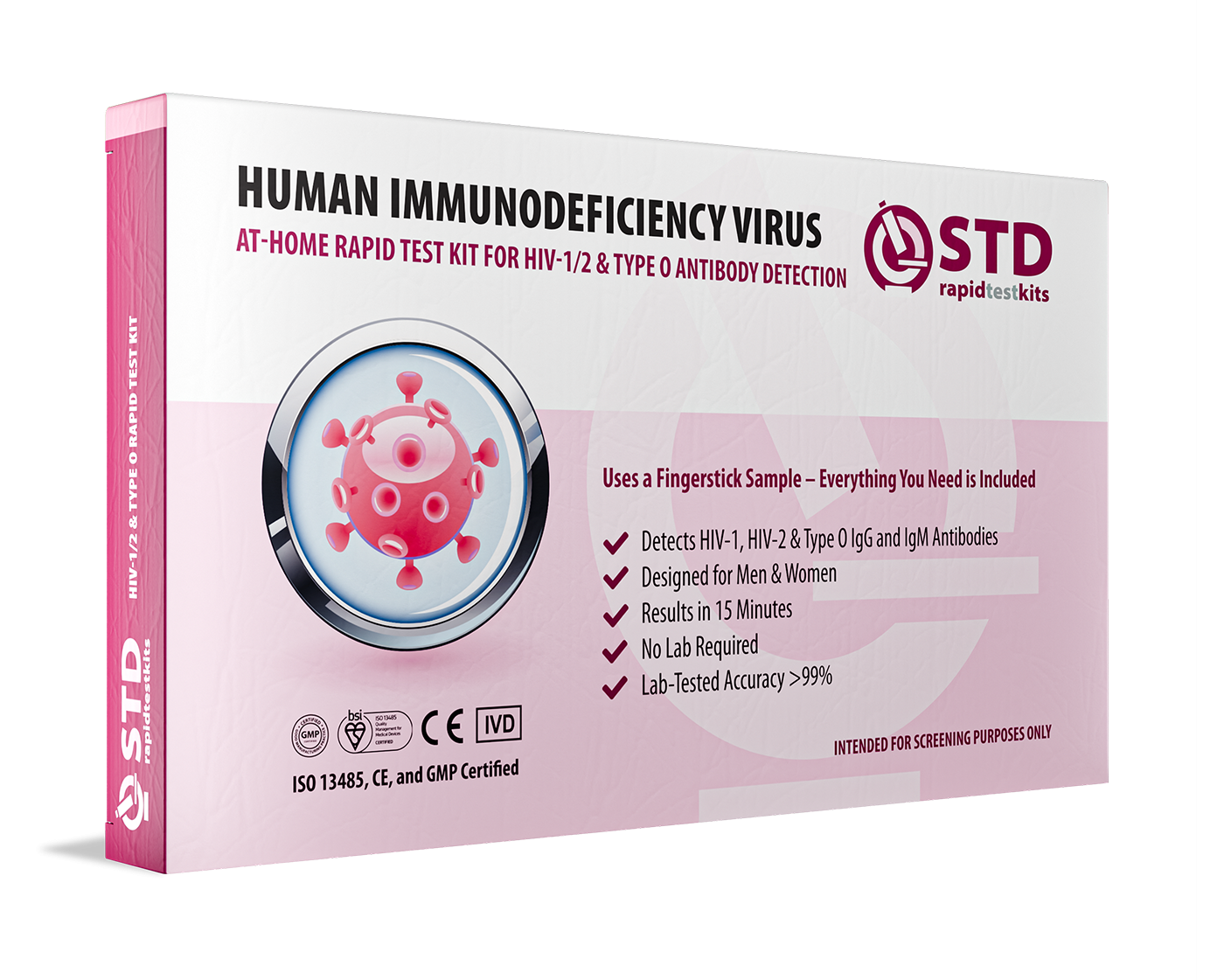Yes, Oral Sex Can Transmit STDs, Here’s What You Need to Know
Because of ignorance, shame, and misinformation, the dangers of oral sex are often taken for granted. Most individuals are unaware that oral STDs can present with minor or no symptoms, leading to unintentional transmission. Awareness of the dangers of STDs during oral sex is an important public health issue.
Sexually Transmitted Diseases That Can Result from Oral Intercourse
Although some sexually transmitted diseases (STDs) caused by oral intercourse may be mild, others can pose serious health risks. Below are the most common infections that can be transmitted through oral-genital and oral-anal contact:
Herpes Simplex Virus (HSV-1 and HSV-2)
- Both types of herpes simplex viruses (HSV-1 and HSV-2) can be transmitted through oral sex.
- HSV-1 (oral herpes) causes cold sores and can be spread to the genitals through oral-genital contact.
- HSV-2 (genital herpes) can also infect the mouth and throat through oral sex.
Symptoms
- Painful sores or blisters around the mouth or genitals
- Itching, flu-like symptoms, and general discomfort
Gonorrhea (Oral or Pharyngeal Gonorrhea)
Oral sex with an infected partner can transmit Neisseria gonorrhoeae, which causes gonorrhea of the throat.
Many cases of oral gonorrhea have no symptoms, allowing undetected transmission.
Symptoms
- Sore throat, swollen lymph nodes, mild pain, or no symptoms at all
Syphilis
- The syphilis-causing bacterium, Treponema pallidum, can be passed through contact with syphilitic ulcers (chancres) during oral sex.
- Early-stage syphilis is highly contagious, even before visible sores appear.
Symptoms
- Painless sores in the mouth, lips, or genitals
- Body rashes and flu-like symptoms
Human Papillomavirus (HPV)
- HPV is linked to oral and throat cancers and is one of the most common STDs.
- Certain strains of HPV cause genital warts, while others increase the risk of oropharyngeal cancer.
Symptoms
- Warts in the mouth, throat, or genitals (sometimes asymptomatic)
Check Your STD Status in Minutes
Test at Home with RemediumPapillomavirus (HPV) Test

 For Women
For Women Results in Minutes
Results in Minutes No Lab Needed
No Lab Needed Private & Discreet
Private & DiscreetOrder Now $33.99 $49.00
Chlamydia (Oral and Pharyngeal Chlamydia)
- Chlamydia trachomatis can infect the throat through oral sex, though it is less common than genital chlamydia.
- Many cases are asymptomatic, making routine testing essential.
Symptoms
- Fever, sore throat, swollen lymph nodes, or no symptoms at all
Human Immunodeficiency Virus (HIV)
- Though the risk of HIV transmission through oral sex is lower than through vaginal or anal sex, it is still possible—especially if there are cuts, sores, or bleeding gums.
- The highest risk occurs when engaging in oral sex with an HIV-positive partner without protection.
Symptoms
- Flu-like symptoms initially, followed by progressive immune system damage if untreated
Hepatitis B & C
- Hepatitis B and C viruses can spread through oral sex, particularly if sores or bleeding gums are present.
- If untreated, these viruses can cause severe liver damage.
Symptoms
- Jaundice (yellowing of the skin), fatigue, nausea, and abdominal pain
- Even when considered a low-risk activity, oral sex can have serious consequences if preventive measures aren’t taken. The next section explores complications related to oral STDs.
The Hidden Dangers of Oral Sex and STDs
- While many assume that STDs only affect the genitals, oral infections can lead to serious complications, including:
Chronic Throat Infections and Inflammation
- Gonorrhea͏͏ and͏͏ chlamydia͏͏ can͏͏ cause͏͏ persistent͏͏ sore͏͏ throats,͏͏ tonsillitis,͏͏ and͏͏ swollen͏͏ lymph͏͏ nodes.
- If͏͏ left͏͏ untreated,͏͏ infections͏͏ can͏͏ lead͏͏ to͏͏ secondary͏͏ bacterial͏͏ overgrowth͏͏ and͏͏ severe͏͏ complications.
Increased͏͏ Risk͏͏ of͏͏ Throat͏͏ Cancer
- HPV͏͏ infections͏͏ in͏͏ the͏͏ throat͏͏ are͏͏ a͏͏ leading͏͏ cause͏͏ of͏͏ oropharyngeal͏͏ cancers,͏͏ especially͏͏ in͏͏ people͏͏ with͏͏ multiple͏͏ sexual͏͏ partners.
- Studies͏͏ show͏͏ men͏͏ have͏͏ a͏͏ higher͏͏ prevalence͏͏ of͏͏ oral͏͏ HPV͏͏ than͏͏ women.
The͏͏ Spread͏͏ of͏͏ Untreated͏͏ STDs͏͏ to͏͏ Other͏͏ Parts͏͏ of͏͏ the͏͏ Body
- Untreated͏͏ syphilis͏͏ can͏͏ progress͏͏ to͏͏ neurological͏͏ damage͏͏ and͏͏ organ͏͏ failure.
- Hepatitis͏͏ B͏͏ and͏͏ C͏͏ can͏͏ lead͏͏ to͏͏ cirrhosis͏͏ or͏͏ liver͏͏ failure͏͏ if͏͏ left͏͏ untreated.
Asymptomatic͏͏ Infections͏͏ Make͏͏ Transmission͏͏ Easier
- Many͏͏ oral͏͏ STDs͏͏ do͏͏ not͏͏ cause͏͏ noticeable͏͏ symptoms,͏͏ leading͏͏ to͏͏ unknowing͏͏ transmission͏͏ to͏͏ multiple͏͏ partners.
- Regular STD testing is the only way to detect these infections early.
Check Your STD Status in Minutes
Test at Home with Remedium3-in-1 STD Test Kit

 For Men & Women
For Men & Women Results in Minutes
Results in Minutes No Lab Needed
No Lab Needed Private & Discreet
Private & DiscreetOrder Now $69.00 $147.00
For all 3 tests
How to Prevent STDs During Oral Sex
Though oral sex carries risks, you can take steps to reduce your chances of contracting an STD:
Use Barriers for Protection
- Condoms: Reduce the risk of HIV, gonorrhea, syphilis, and herpes.
- Dental dams: Prevent contact with bodily fluids during oral sex on a vulva or anus.
- Flavored condoms: Make protection more enjoyable while lowering STD risks.
Maintain Good Oral Hygiene—But Avoid Brushing Right Before Sex
- Keeping your mouth healthy lowers the risk of cuts and sores.
- Avoid brushing or flossing right before oral sex, as it can create microscopic cuts that make transmission easier.
Get Vaccinated Against HPV and Hepatitis B
- The HPV vaccine protects against throat and cervical cancers.
- The Hepatitis B vaccine significantly lowers infection risk.
Limit the Number of Sexual Partners
- The more partners you have, the greater the risk of exposure.
- Knowing your partner’s STD status is crucial for safer sex.
Get Tested Regularly
- Since oral STDs are often asymptomatic, regular testing is essential.
- The CDC recommends annual testing or more frequent testing if you have multiple partners.
Avoid Oral Sex During an Active Outbreak
- If you or your partner have visible sores, cold sores, or STDs, avoid oral sex until fully healed.
- Many STDs are most contagious when symptoms are present, but some can spread even without symptoms.
- By taking these precautions, you can protect yourself while maintaining a healthy sex life.
Research and Statistics on Oral Sex and STD Transmission
Scientific studies confirm that oral sex plays a significant role in the transmission of sexually transmitted diseases (STDs). Below are some key findings:
HPV and Oral Cancer Risks Are Rising
The Centers for Disease Control and Prevention (CDC) reports that 70% of oropharyngeal cancers (cancers of the throat, tonsils, and tongue base) are caused by HPV.
Men are twice as likely as women to develop HPV-related oral cancers.
Pharyngeal Gonorrhea Is Increasing
A 2021 study published in BMJ's Sexually Transmitted Infections Journal found that 35-50% of all gonorrhea cases in men who have sex with men (MSM) occur in the throat due to oral sex.
Because oral gonorrhea is often asymptomatic, it is more likely to be transmitted unknowingly.
Check Your STD Status in Minutes
Test at Home with RemediumGonorrhea Test Kit

 For Men & Women
For Men & Women Results in Minutes
Results in Minutes No Lab Needed
No Lab Needed Private & Discreet
Private & DiscreetOrder Now $33.99 $49.00
Herpes Can Spread Even Without Symptoms
Research from Johns Hopkins University found that herpes simplex virus (HSV) can be shed from the mouth even when no cold sores are present, meaning someone without visible symptoms can still transmit the virus.
HIV Transmission Through Oral Sex – Low but Possible
The CDC states that HIV transmission through oral sex is rare but possible, especially when there are cuts, gum disease, or open sores in the mouth.
A 2019 National Institutes of Health (NIH) study estimated the risk of HIV transmission through oral sex to be about 0.04% per exposure, but this risk increases if the person has another STD.
Many People Are Unaware of Oral STD Risks
A study in the Sexual Health Journal found that over 60% of people engaging in oral sex believed it carried little to no risk of STD transmission.
This misconception leads to lower condom and dental dam use, increasing the risk of infection.
Understanding these risks allows people to make informed decisions about their sexual health.
Real People’s Experiences with Oral STDs
Hearing real stories can help put the risks into perspective. Below are accounts from people who unknowingly contracted STDs through oral sex:
Jacob, 28 – "I Thought I Had a Sore Throat… It Was Gonorrhea."
"I had a persistent sore throat for weeks. I assumed it was just allergies or a mild infection. I never thought it could be an STD until my partner got tested and came back positive for gonorrhea. When I got checked, I found out I had pharyngeal gonorrhea, which I had unknowingly passed to my partner. I now get tested regularly and use protection during oral sex.”
Emily, 31 – "Oral Herpes Changed How I Approach Intimacy."
"I contracted HSV-1 from a guy I dated in college who had cold sores but didn’t tell me. I had no idea that herpes could be transmitted through oral sex. Now, I always ask partners about their sexual health, and I’m more open about my own diagnosis to help reduce the stigma."
Mark, 40 – "I Didn’t Know HPV Could Lead to Throat Cancer."
"I had no idea that HPV was linked to throat cancer until my doctor brought it up. I was diagnosed with oral HPV during a routine screening, and it made me realize how little I knew about STDs beyond the usual ones like chlamydia and gonorrhea. If I could go back, I’d have gotten the HPV vaccine earlier."
These stories emphasize the importance of education, communication, and regular testing when it comes to STDs and oral sex.
Common Misconceptions About Oral Sex and STDs
There are many myths surrounding oral sex and STDs, leading to false security and risky behavior. Let’s debunk some of the most common ones:
Myth: You Can’t Get an STD from Oral Sex
- Reality: Many STDs, including herpes, gonorrhea, syphilis, chlamydia, and HPV, can spread through oral-genital or oral-anal contact.
- Example: Pharyngeal gonorrhea (throat gonorrhea) is a common but often undiagnosed infection spread through oral sex.
Myth: No Symptoms Means No STD
- Reality: Many STDs are asymptomatic, meaning you or your partner could have an STD without knowing it.
- Example: HPV can be present in the throat without visible warts, and herpes can be contagious even without an outbreak.
Myth: Mouthwash Kills STDs After Oral Sex
- Reality: While mouthwash can reduce bacterial levels, it does not kill viruses or bacteria responsible for STDs.
Myth: Condoms and Dental Dams Aren’t Necessary for Oral Sex
- Reality: Using barriers like condoms or dental dams significantly reduces the risk of STD transmission.
Myth: HIV Can’t Be Transmitted Through Oral Sex
- Reality: While the risk is lower compared to vaginal or anal sex, HIV can still be transmitted through oral sex, particularly if there are cuts or sores in the mouth.
By dispelling these myths, individuals can make better choices about their sexual health.
Check Your STD Status in Minutes
Test at Home with RemediumHIV Rapid Test Kit

 For Men & Women
For Men & Women Results in Minutes
Results in Minutes No Lab Needed
No Lab Needed Private & Discreet
Private & DiscreetOrder Now $33.99 $49.00
FAQs
1. Can you get chlamydia from oral sex?
Yes, chlamydia can infect the throat (pharyngeal chlamydia) through oral-genital contact. Many cases have no symptoms, so testing is essential.
2. What is the safest way to have oral sex?
Using barriers like condoms or dental dams, maintaining good oral hygiene, getting vaccinated for HPV and hepatitis B, and regular STD testing all contribute to safer oral sex.
3. How common is oral HPV?
HPV is one of the most common STDs, and oropharyngeal HPV is increasing, especially among men. Studies suggest that 10% of men and 3.6% of women have oral HPV at any given time.
4. Can you tell if someone has an oral STD just by looking?
No, many oral STDs do not have visible symptoms. Even without sores or warts, infections like herpes, HPV, and gonorrhea can still be present.
5. Can STDs from oral sex go away on their own?
Some STDs, like HPV, can clear naturally, but others, like herpes and HIV, stay in the body for life. Bacterial infections like gonorrhea, chlamydia, and syphilis require antibiotics for treatment.
6. Is giving oral sex safer than receiving it?
Not necessarily. Both giving and receiving oral sex carry risks, though the giver (the person performing oral sex) may have a slightly higher risk of infection, especially for throat STDs like gonorrhea and chlamydia.
7. Can cold sores (oral herpes) spread to the genitals?
Yes. If a person with oral herpes (HSV-1) performs oral sex, they can transmit herpes to their partner’s genitals, leading to genital HSV-1.
8. Can kissing transmit STDs?
Kissing alone does not transmit most STDs, but herpes (HSV-1), syphilis (if open sores are present), and HPV can potentially spread through kissing.
9. If I test negative for an STD, does that mean I’m in the clear?
Not always. Some STDs have an incubation period (window before they show up on a test). If you were recently exposed, you may need to wait a few weeks and retest.
10. Should I get tested for oral STDs even if I don’t have symptoms?
Yes! Because many oral STDs do not cause noticeable symptoms, getting tested regularly ensures early detection and treatment.
The Importance of STD Testing and Safe Practices
Although oral sex may be perceived as low-risk, it still carries real dangers of STD transmission. Understanding how infections spread, using protection methods, and getting regular screenings can make a huge difference in sexual health.
To stay safe:
- Get tested regularly, especially if you have multiple partners.
- Use barrier protection (condoms or dental dams) during oral sex.
- Get vaccinated for HPV and hepatitis B.
- Have open conversations with partners about sexual health.
Being proactive about sexual health doesn’t mean sacrificing pleasure—it means ensuring long-term safety for yourself and your partners. Get tested, stay informed, and protect yourself.
Sources
1. World Health Organization – HIV/AIDS Facts
2. What causes white spots on your throat – Healthline (strep throat, thrush, mono, herpes)










